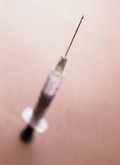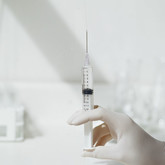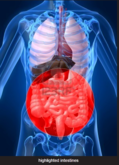Biosimilars/Research
Biosimilars in the treatment of psoriasis
A recent paper by Spanish dermatologists reviews the principles of biosimilarity and equivalence trials that have led to the approval of the available adalimumab biosimilars [1]. Given the current sophistication of the analytical processes, the need to include therapeutic equivalence trials for some drug classes might be eventually waived, but they are currently standard. Equivalence trials are designed to establish that the efficacy and safety of the biosimilar are similar to those of the reference biological, with a predetermined margin of equivalence that in psoriasis ranges from ±14% to ±18%. Lower margins would imply potentially unaffordable sizes of treatment groups. The primary endpoint of the study and the timing of the determination may or may not be the same as those used in the pivotal trials of the reference biological, but the number of patients included is intentionally lower; the statistical design of equivalence trials is currently the subject of active research. In many equivalence studies, biosimilars obtain response rates higher than those reported in the pivotal studies for the originator, probably because of the absence of a placebo arm, which would tend to raise researchers’ and patients’ efficacy expectations.
Adalimumab biosimilar FKB327 causes less pain than originator
Fujifilm Kyowa Kirin Biologics’ adalimumab biosimilar FKB327 has been found to cause less injection-site pain compared to the reference product, according to data from more than 1,001 subjects and patients [1].
Biosimilars regulation, clinical trials, approval and adverse events in Malaysia
Compared to chemical drugs, biologicals are more expensive because of their complicated manufacturing processes. Patients often use biologicals for long-term therapy, which may exert huge budgetary pressure on healthcare systems. One alternative solution to address this issue is to use biosimilars that are similar to the originator biologicals, with no clinical differences in terms of quality, efficacy, safety and immunogenicity. In Malaysia, the National Pharmaceutical Regulatory Agency (NPRA) approved the country’s first biosimilar, somatropin, in 2010. Since then, the number of approved biosimilars and clinical trials on biosimilars continue to rise. With increased use of biosimilars, an increased number of adverse events (AEs) is expected because like any other biological, they may elicit immunogenic reactions.
Etanercept biosimilar injection pen, YLB113, convenient and easy to use
A study of an injection pen formulation of the etanercept biosimilar YLB113, which is manufactured by the Japanese firm YL Biologics, finds it to be convenient and easy to use and convenient among patients with rheumatoid arthritis [1].
Samsung Bioepis and Eden Biologics announce new biosimilars trials
In early 2021, Samsung Bioepic and Eden Biologics announced advances in the clinical trials of their respective ustekinumab and denosumab biosimilars.
Public health impact of using biosimilars and relevance of automated follow-up
Biological reference drugs and biosimilars have highly complex structures. Biosimilars need to demonstrate their biosimilarity during their development but unpredictable variations can remain, such as micro-heterogeneity. The healthcare community may raise questions regarding the clinical outcomes induced by this micro-heterogeneity. Indeed, unwanted immune reactions may be induced for numerous reasons, including product variations. However, it is challenging to assess these unwanted immune reactions because of the multiplicity of causes and potential delays before any reaction. Moreover, safety assessments, as part of preclinical studies and clinical trials, may be of limited value with respect to immunogenicity assessments because they are performed on a standardized population during a limited period. Real-life data could therefore supplement the assessments of clinical trials by including data on the real-life use of biosimilars, such as switches. Furthermore, real-life data also include any economic incentives to prescribe or use biosimilars.
Pelmeg developed with aid of regulatory reform
The development of Pelmeg, a biosimilar of pegfilgrastim, revealed flexibility in the regulatory guidelines as they were superseded by state-of-the-art science, a study uncovers [1].
Knowledge and perceptions about naming biosimilars in the US
Following the introduction of biosimilars, naming conventions for biologicals have been introduced, in part to support pharmacovigilance.
Infliximab biosimilars for IBD patients: experience from Italy
In the last 20 years, biological drugs have become the mainstream therapy for patients affected by moderately-to-severely active inflammatory bowel disease (IBD), even though they are associated with a significant increase in health-related costs. After the expiry of patents on originator drugs, the advent of antitumour necrosis factor alfa (TNF-α) biosimilars resulted in considerable cost-savings and increased patients’ access to these drugs. After having completed registration trials in rheumatic diseases [1, 2], the infliximab biosimilar CT P13 obtained approval based on a comprehensive comparability exercise, for all other indications, including IBD. Accordingly, physicians started to increasingly prescribe biosimilars for patients with IBD – including those that were both anti-TNF-α naïve and experienced. There is growing evidence that early introduction of biological therapy in IBD is associated with more favourable outcomes in the medium to long term. Keeping that in mind, it follows that the advent of biosimilars has the potential to allow more patients to have access to biological therapy at an earlier stage of disease, which could contribute to prevent disease progression and damage accumulation, with a consequential improvement in patients’ quality of life.
Efficacy and safety of interferon beta-1a (ReciGen) in COVID-19
Since COVID-19, caused by SARS-CoV-2, emerged as a worldwide concern and was declared a pandemic, finding a safe and effective treatment for this disease has been a top priority. Different treatment candidates, including interferon [1], remdesevir [2], tocilizumab [3], and dexamethasone [4] have been investigated in multiple clinical trials.












